One year ago today, the people of Britain went to the polls to vote on whether to take back control of its future from European institutions after 44 years of subjugation.
“Dare to dream that the dawn is breaking on an independent United Kingdom… a victory for real people, a victory for ordinary people, a victory for decent people”, ‘Mr. Brexit’ former UKIP leader Nigel Farge told an exhausted yet jubilant crowd the next morning as the results came in.
“We have fought against the multinationals, we have fought against the big merchant banks, we have fought against big politics, we have fought against lies, corruption, and deceit. And today honesty, decency, and belief in nation, I think now is going to win,” he continued.
Here is a reminder of why we voted Brexit 12 months ago. To become a strong, independent nation once again! pic.twitter.com/ThIIaSrUHH
— Nigel Farage (@Nigel_Farage) June 23, 2017
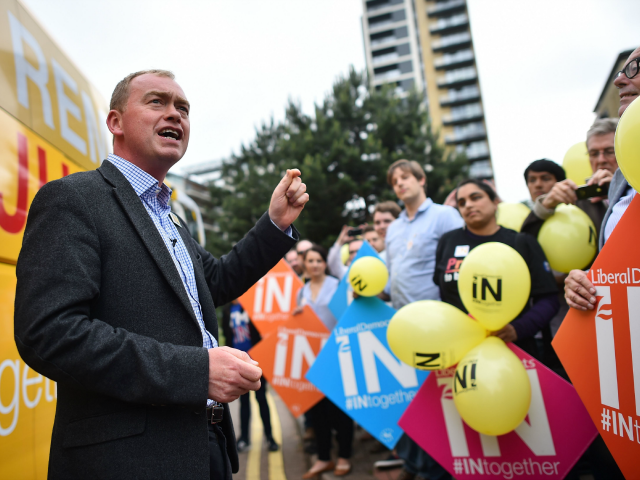
Liberal Democrats leader Tim Farron greets supporters after arriving in the Liberal Democrat Vote Remain campaign bus, campaigning to avoid a Brexit in the EU referendum, during a launch in east London on June 19, 2016. (BEN STANSALL/AFP/Getty)
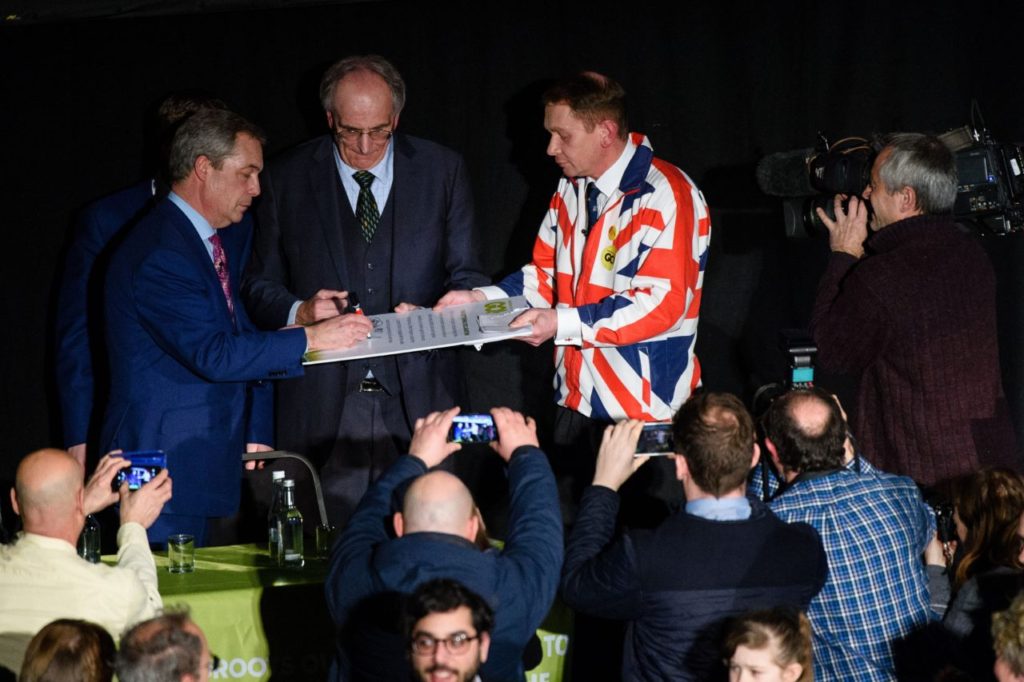
UK Independence Party (UKIP) leader Nigel Farage (L) signs the “Kettering Accord”, a pledge to work cross-party towards a common goal of leaving the EU throughout the upcoming referendum campaign during the launch of the “Grassroots Out”, a new cross-party group that will campaign for the UK to leave the European Union, in the Kettering Conference Centre in Kettering, north of London, on January 23, 2016. (LEON NEAL/AFP/Getty)
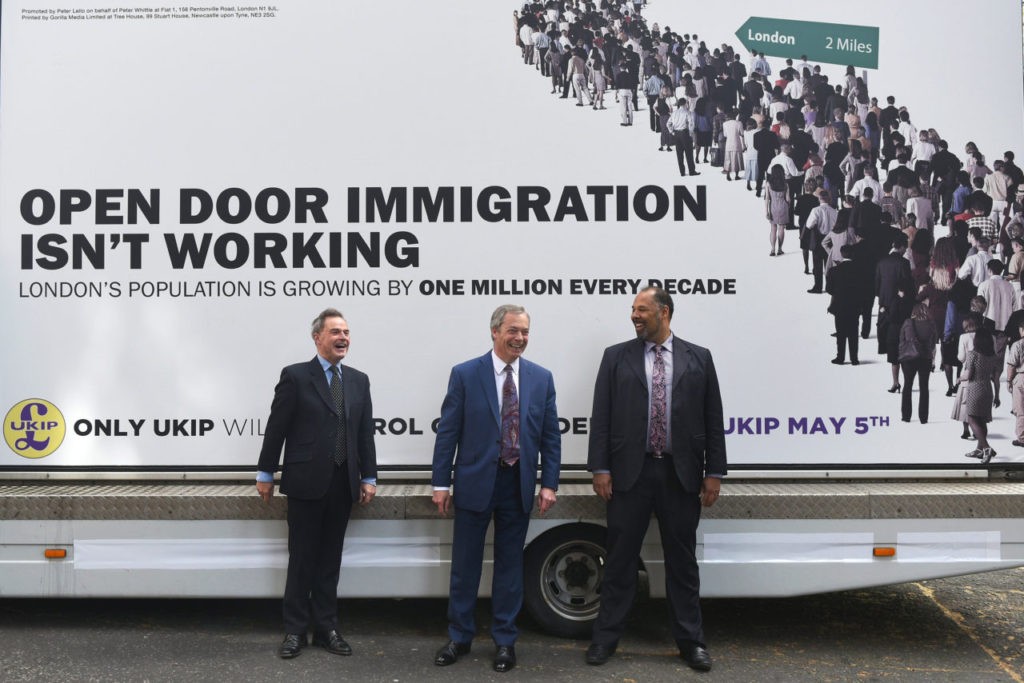
Nigel Farage (centre) leader of the United Kingdom Independence Party, poses with London mayoral candidate Peter Whittle (left) and David Kurten, (right), candidate for the London Assembly elections, in Smith Square ahead of unveiling the party’s final election poster of the London Mayoral election campaign on May 3, 2016 in London, England. (Mary Turner/Getty)
The vote for Brexit, backed by 17.4 million people, represented the biggest democratic mandate in the history of the nation, and the greatest political revolution in the post-war period.
The result was emphatic, but the campaign was peppered with moments of uncertainty, comedy, deceit, and heated debate. Here are some highlights.
– George Osborne’s Punishment Budget –
The peak of what was dubbed “project fear” came when then-Chancellor George Osborne published a so-called “punish budget” threatening tax-hikes if the nation voted for Brexit.
The Treasury produced the 90-page booklet, published as Brexit support was climbing in the polls, detailed a series of calamitous and costly short-term consequences of a vote to leave the European Union (EU).
Mr. Osborne said in the foreword that it would be a “serious and sober assessment of the economic facts”, rather than a campaigning document. But he concluded with an unequivocal pro-European message, saying: “A vote to remain in the EU would be the best way to ensure continued growth and safeguard jobs.”
The document claimed the economy would shrink, millions would be unemployed, house prices would crash, and borrowing would soar – all of which have turning out to be false.
It rightly predicted, however, that the pound would fall in value – something that has had some positive effects by making exports cheaper and giving manufacturing a boost.
Soon after the vote, the Emergency Budget was ruled out by the new chancellor and Cambridge University’s Centre for Business Research later condemned the ‘Project Fear’ predictions as “very flawed and very partisan”.
– The ‘Battle of the Thames’ –
One of the most comical, theatrical, and outright bizarre moments of the campaign came when Mr. Farage and a cross-party group of politicians attempted to lead a flotilla of pro-Brexit fisherman up the River Thames to campaign for a ‘Leave’ vote.
They were surprised by a rival armada lead by singer Sir Bob Geldof and manned by millionaire celebrities and young, metropolitan liberals who played music and shouted over a megaphone to drown out Mr. Farage’s interviews with the press.
The Boomtown Rats star blasted out songs including Chicago’s “If You Leave Me Now” and Dobie Gray’s “In with the in Crowd.” Addressing Mr. Farage over the PA system on his vessel, the Sarpedon, Geldof said: “You are no fisherman’s friend.”
A Labour Party activist aboard Mr. Geldof’s boat later slammed the “billionaire being condescending to fishermen” who “drowned out” “working class people”.
The clash was widely cited as highlighting the ugly, elitist nature of the pro-EU campaign.
– Corbyn’s Luke-Warn ‘Remain Support’ –
Jeremy Corbyn had been a life-long eurosceptic before assuming control of the Labour Party, frequently berating the “unaccountable bureaucrats” of Brussels and criticising the free-market principles of the bloc.
During the 1975 referendum on whether or not to join the ‘Common Market’, Mr. Corbyn was aligned with the Labour left led by Tony Benn, who campaigned to reject the “capitalist club”.
However, when he seized control on the Labour Party, the supposed “man of principle” quick changed his tune. Labour was almost unanimously pro-EU, including and especially his faction of the membership Momentum.
He struggled to hide his underlying Euroscepticism during the campaign, and when asked on the comedy show The Last Leg, he confessed he was only “seven out of ten” in favour of the bloc.
After the Brexit vote, many of his pro-EU comrades partially blamed him for losing the referendum for ‘Remain’.
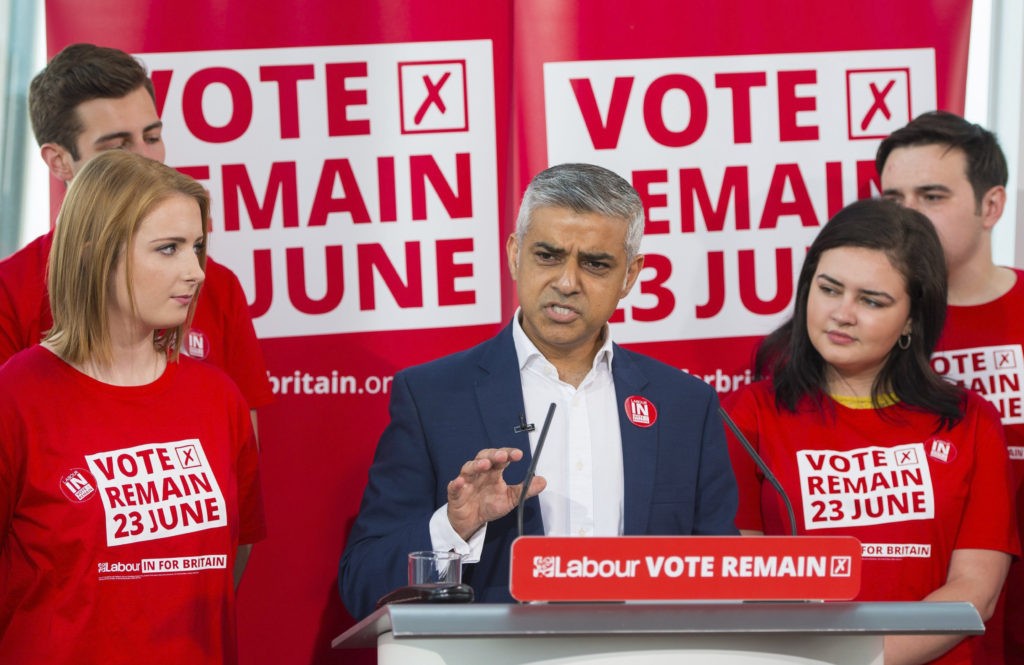
Mayor of London Sadiq Khan speaks during a Labour party ‘Vote Remain’ campaign event, at The Shard in London Thursday June 9, 2016. The referendum on Britain’s membership of the EU will take place on Thursday June 23. (Dominic Lipinski PA via AP)
– ‘Daring to dream…’ –
And of course, who could forget this incredible moment…
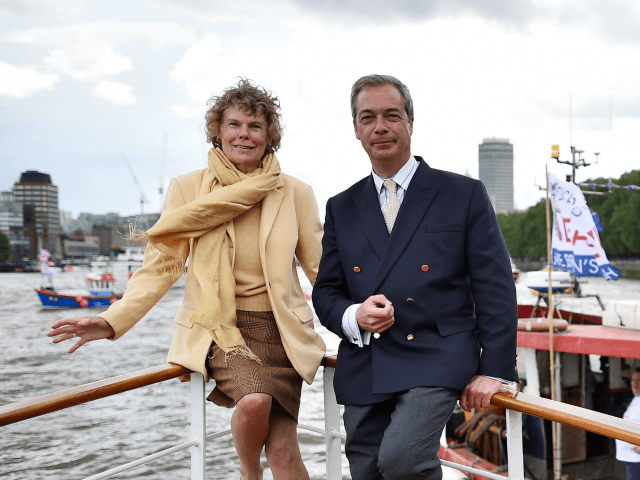
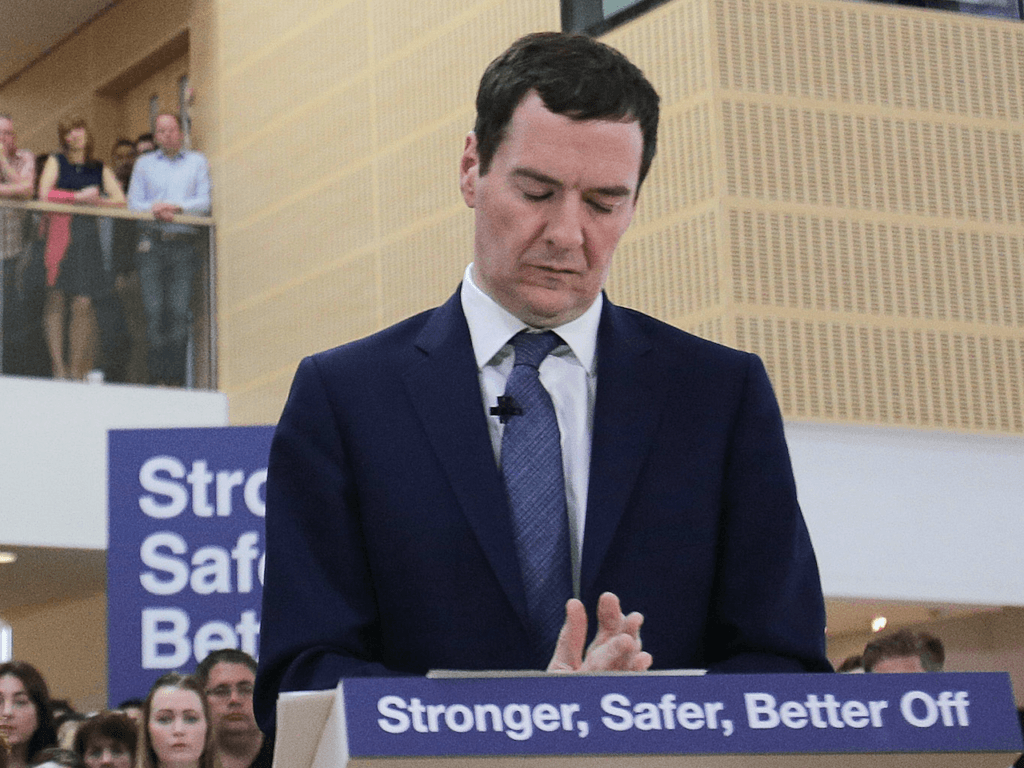
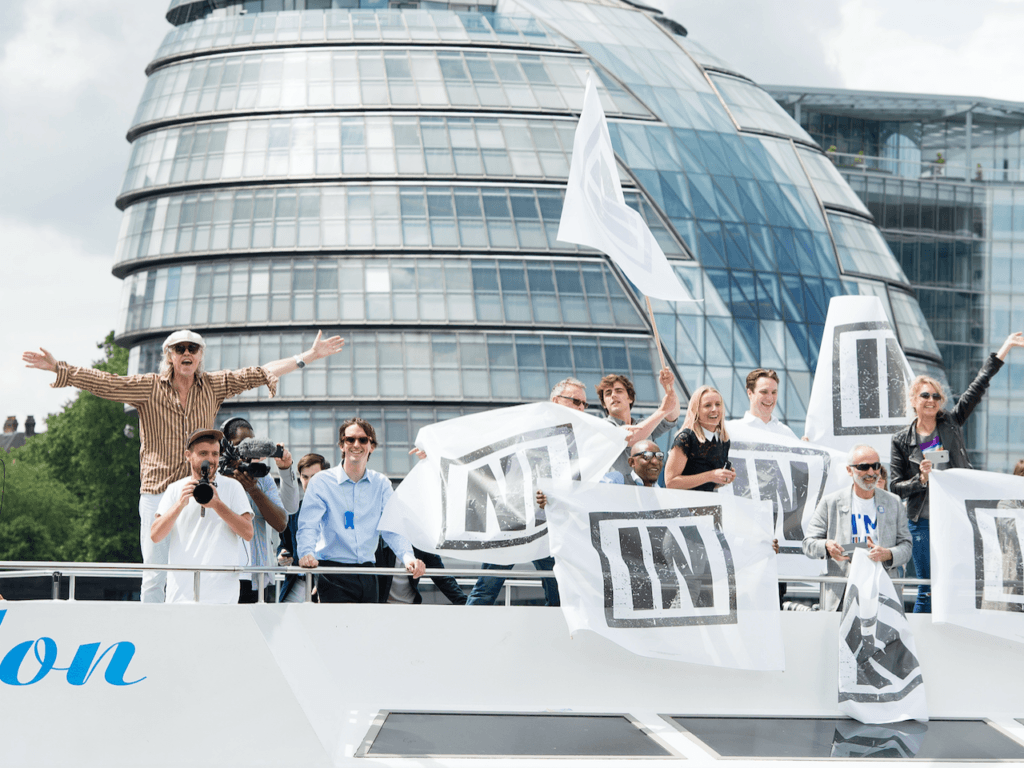
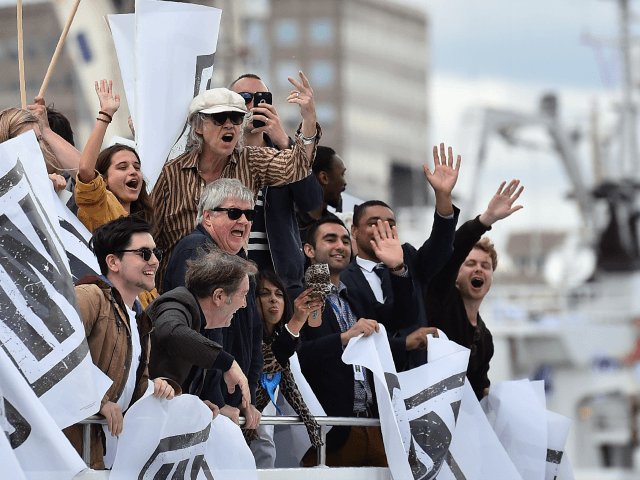
COMMENTS
Please let us know if you're having issues with commenting.